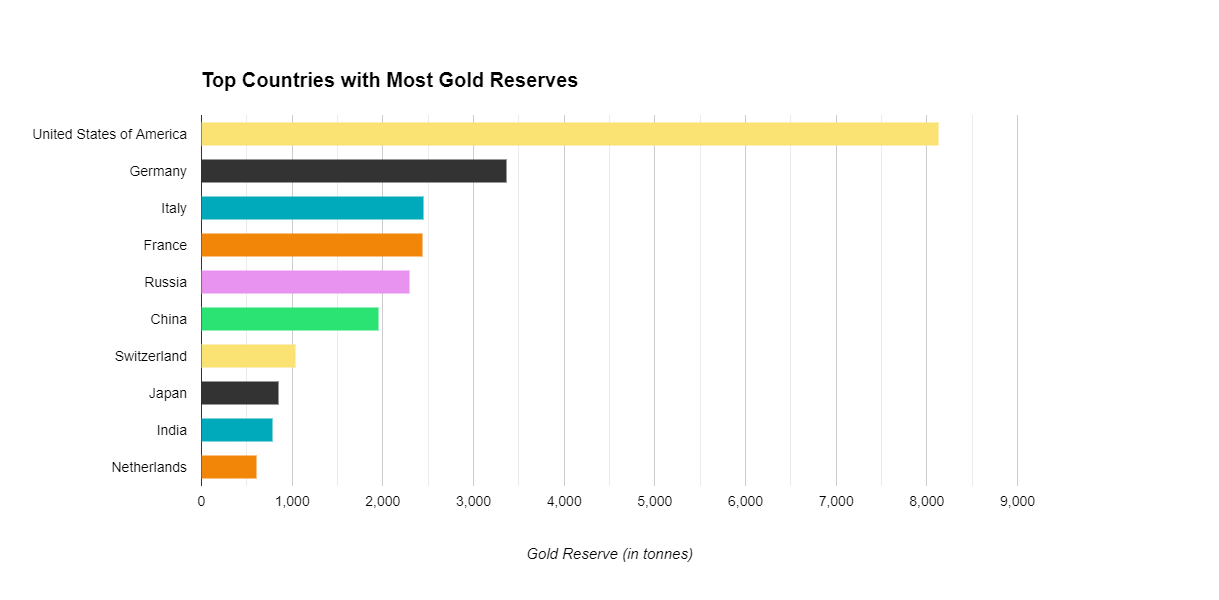Gold, frequently referred to as the “king of metals,” has held a distinct function in the world’s economics for ages. One of the most essential applications of gold is as a reserve asset maintained by central banks globally. These reserves function as a protection for a country’s currency and play a crucial role in fighting inflation. In this article, we will delve into the enthralling world of gold reserves, concentrating on the top 10 countries with the highest gold holdings as per recent reports, along with insights into other nations’ considerable reserves.
Top 10 Countries with the Largest Gold Reserves

According to WGC (World Gold Council) data, the top 10 countries possessing the highest gold reserves as per the latest report are:
- United States – 8,133 tonnes – $540B
- Germany – 3,359 tonnes – $215B
- Italy – 2,452 tonnes – $157B
- France – 2,436 tonnes – $156B
- Russia – 2,299 tonnes – $146B
- China – 1,948 tonnes – $124B
- Switzerland – 1,040 tonnes – $66B
- Japan – 846 tonnes – $54B
- India – 785 tonnes – $45B
- Netherlands – 612 tonnes – $39B
Other Countries with Significant Gold Reserves
Beyond the top 10, other countries have substantial gold stockpiles. Some of these noteworthy nations include:
– Turkey – 385 tonnes
– Kazakhstan – 383 tonnes
– Portugal – 382 tonnes
– Uzbekistan – 342 tonnes
– Saudi Arabia – 323 tonnes
– United Kingdom – 310 tonnes
– Lebanon – 286 tonnes
– Spain – 281 tonnes
– Austria – 280 tonnes
– Venezuela – 161 tonnes
The Significance of Gold Reserves
Gold reserves serve as a financial safety net for countries, and their value cannot be emphasised. They perform numerous key responsibilities in a nation’s economic stability:
1. Currency Value Guarantee: Gold reserves strengthen a country’s currency value, as they can be utilised to sustain and maintain the national currency in times of economic crisis.
2. Inflation Hedging: Gold’s inherent value tends to rise during periods of inflation, making it a beneficial commodity for governments to safeguard their wealth and maintain purchasing power.
3. Global Economic power: Countries with substantial gold holdings frequently wield greater power in international financial markets and negotiations.
In conclusion, gold reserves remain a vital element of a country’s economic arsenal. They work as a financial safety, guaranteeing stability to national currencies and functioning as a hedge against inflation. The top 10 countries with the highest gold reserves, including the United States, Germany, Italy, France, Russia, China, Switzerland, Japan, India, and the Netherlands, exert immense weight in the global economic landscape. Nevertheless, it’s vital to observe that many other countries, regardless of their size, also have considerable gold reserves. These reserves continue to play an important role in the complicated web of international banking, ensuring economic security for nations worldwide.
Also Read
